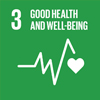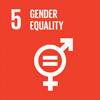
Today’s world of work is facing significant challenges due to changes in the lifestyle orientation of the younger generation and increasing digital pressures. These substantial changes in the world of work demand a new perspective on life balance. Professor of Psychology and Organisational Behaviour at the Faculty of Economics and Business, Gadjah Mada University (FEB UGM), Prof. Drs. Gugup Kismono, M.B.A., Ph.D., emphasised the importance of restructuring the work system to make it more humane, balanced, and sustainable.
Delivering an inaugural speech entitled ‘Finding Solutions Towards Work-Life Balance Amidst Changes in the Orientation of Young People ’, Gugup mentioned that the increasing imbalance between work and personal life among the younger generation is a phenomenon occurring in today’s world of work.
“One of the most striking issues is the increasing imbalance between work and personal life among the younger generation,” he explained on Thursday (13/10/2025) at the UGM Senate Hall.
The Microsoft Work Trend Index (2023) report notes that nearly half of young workers globally (48%) experience work fatigue or burnout due to high digital demands and blurred work boundaries. A similar situation in Indonesia, where a Jakpat survey (2023) reveals that more than 60% of young workers struggle to maintain a balance between work and personal life due to excessive workloads and inadequate organisational support for healthy flexibility.
“The problem is not with Generation Z, but with a work system that has not adapted,” he said.
Gugup mentioned that this phenomenon has inspired his field of study, psychological and organisational behaviour, to re-examine how motivation, psychological well-being, and adaptive work behaviour need to form the basis for formulating more humane and sustainable organisational policies and cultures. According to him, there are three main reasons why this review is essential. First, there are still misunderstandings about the work orientation of the younger generation. Second, the isomorphism of flexible policies that follow trends. Third, there is a need for data-driven or research-based policies.
He explained that the younger generation now places work-life balance on par with career and income. Data from a JobStreet Indonesia survey (2023) shows that 78 per cent of Gen Z prioritise life balance over high salaries. According to him, phenomena such as quiet quitting and the gig economy are not forms of laziness, but expressions of the search for a more meaningful life. In the context of Indonesian culture, the values of cooperation and social harmony remain strong; however, paternalistic structures and a culture of hesitation often hinder open communication about stress and mental well-being.
Gugup offers strategic solutions at three levels: individual, organisational, and systemic. At the personal level, young workers need to strengthen their acceptance mindset and ability to set digital boundaries. At the organisational level, leaders must foster a work culture that supports psychological well-being, including implementing a right-to-disconnect policy. At the systemic level, the state needs to expand portable social protection for freelance and platform-based workers.
Gugup reiterates the various challenges entering this new era of work with the gig economy, WFH testing boundaries, and Gen Z reminding us of the true meaning of work. However, from these challenges comes a significant lesson: work-life balance is not a luxury, but rather the infrastructure for long-term productivity.
“We need to avoid the mistake of blaming the younger generation or a particular generation. What needs to change is our work system,” he said.
At the end of his presentation, he said that life balance is like the two wings of a bird. Only when both are strong can it fly high. The same applies to careers and life. Both must be in harmony so that the younger generation can fly high to achieve their dreams, without losing their happiness and health along the way.
“Finding this balance is not only for the comfort of individuals, but also for the future of our companies and our nation. A healthy, productive, and meaningful younger generation will be the driving force behind Indonesia Maju,” he concluded.
Reportage by: Kurnia Ekaptiningrum










